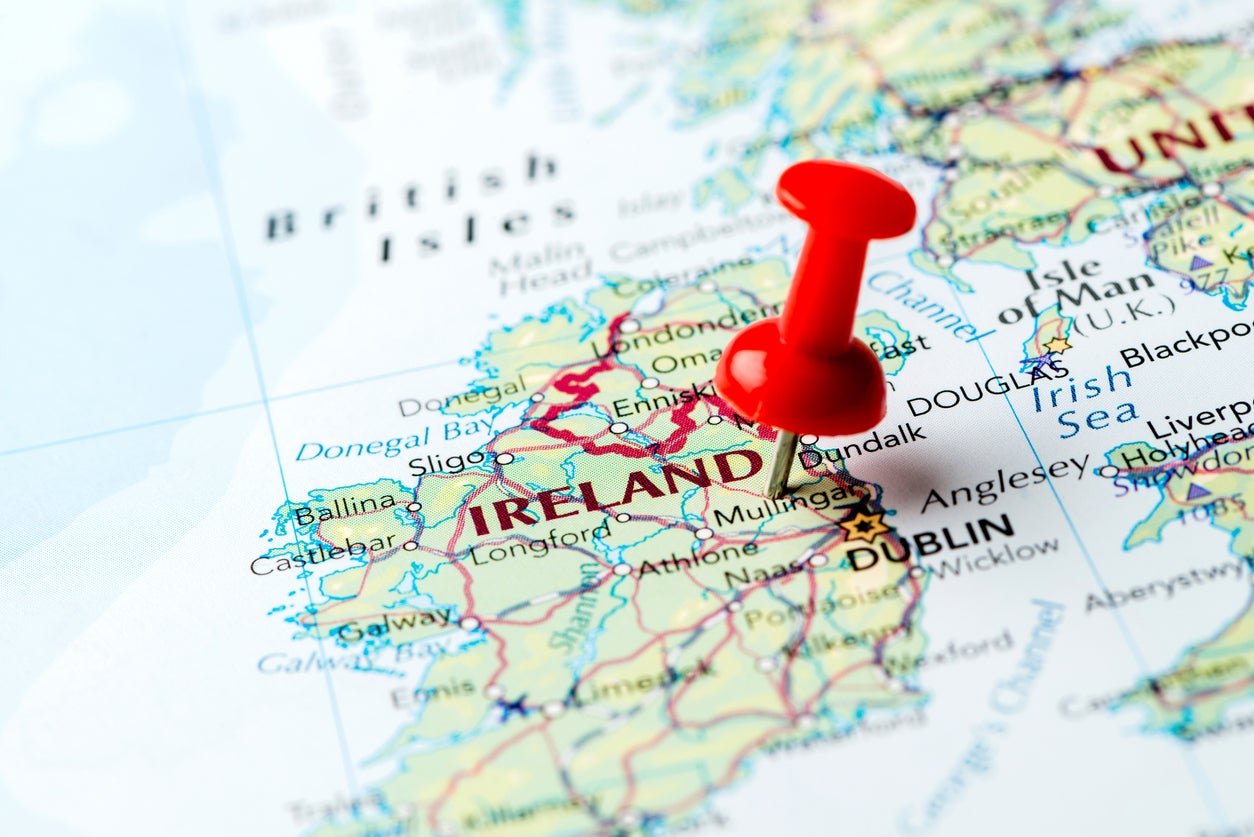100 years after Britain partitioned our island, we must prepare for a united Ireland
Instead of celebrating this centenary, we should look seriously at how to bring the island of Ireland and its people back together


It has been 100 years since Wesminster passed the Government of Ireland Act on 23 December 1920, which set in place the partition of Ireland in 1921.
Partition was a messy solution to the Irish question. While the majority of people in Ireland desired independence, the unionist minority concentrated in the north-east of the country wished to remain part of the union with Britain. Partition was never supposed to be permanent, but as the decades ticked on, the division became deeper.
The south of Ireland pushed on with separation from Britain, eventually becoming a full republic with a constitution rooted in Irish nationalism and conservative Catholicism. Pulling in the other direction, Northern Ireland became a hotbed of sectarianism, where unionists kept a firm grip on what was essentially a one-party state, with an oppressed nationalist minority. By the time the Troubles broke out in the late 1960s, island-wide harmony seemed further away than ever.
Partition was a failure which sparked more division on the island of Ireland than had existed beforehand, and that is one of many reasons why we should not be celebrating this centenary. Instead, we should use 2021 to look seriously at how to bring the island of Ireland and its people back together.
We have already come so far. The Good Friday Agreement of 1998 gave us a framework for peaceful co-operation and reconciliation. In recent decades, the Republic of Ireland has become a European success story, which has loosened the ties between church and state. Northern Ireland too has become a more outward-looking place, with many seeking to move on from the tribalism of the past – in spite of our political leadership.
The north and south are becoming much more similar places, with people sharing the same beliefs and concerns. Across the island, young people are seeking to forge a new country which is equally inclusive of all its people, rooted in social justice and economic progress. There are many signs that a united Ireland is becoming a reality, regardless of whether we move to advance it.
Firstly, demography is destiny. While Northern Ireland was carved out to ensure an in-built unionist majority, this has been eroded in recent elections. This alone calls for a reassessment of the basis of the union, but in order to change the status quo, nationalists will need to win over the growing group of “others” who are more centre-ground, and don’t vote along “orange and green” lines.
This task has been made easier by Brexit, and the impact it has had on Northern Ireland. The majority of people there voted to remain in the EU, but were carried out by the wider UK vote. Nationalists will find many of the aforementioned “others” would vote for a united Ireland if it led to rejoining the EU, which indeed it would, as agreed between Ireland and other EU leaders in 2017.
Furthermore, Boris Johnson’s betrayal of unionism by drawing a new border in the Irish Sea means Northern Ireland will stay more closely aligned to the single market and customs union. This means the island of Ireland will become more harmonised as an economic unit, which will surely help on the road to unity.
Then there is the issue of Scotland. There is a strong chance that the SNP’s second bid for independence will prove successful. If Scotland breaks away, this would shatter the union itself, and would spark a necessary constitutional reassessment. Northern Ireland’s unionists may be disappointed to find that the English nationalists who backed Brexit won’t care much to keep them in the fold. Indeed, many would probably welcome the severance of such a heavily subsidised region.
There is a strong chance that the convergence of these themes and more will leave us facing a united Ireland much sooner than we are prepared for. As things currently stand, our governments have done precious little planning for this possibility, while the legacy of our troubled past has yet to be resolved in any meaningful sense.
We cannot afford for Irish reunification to be our Brexit. It is too important to get wrong. To avoid that disaster, we must carry out sensible, mature and pragmatic planning. Some of this is already underway.
In October, the Irish government presented its new Shared Island unit, which is designed to increase island-wide projects to bind north and south closer together. They should go further and launch a citizens’ assembly to explore a united Ireland in earnest, and produce a white paper on the issue, something which the Sinn Fein opposition would likely pursue if they form the next government.
Outside the political arena, others are doing their homework. Ireland’s Future is a civic nationalist group comprising academics, economists and others who host online forums and discussions which were this month backed up by a well-researched document on how to advance Irish unity. They are calling for a referendum on the issue as soon as 2023.
Elsewhere, a united Ireland is now discussed seriously as a live issue in corners of the media which would previously have dismissed it as folly, or happily kicked it into the long grass – not to mention a new generation of bloggers, podcasters and social media voices who are bringing fresh life to the cause.
A united Ireland is suddenly becoming a very real possibility, and it couldn’t be happening at a better time. 2021 should be the year we wipe our slate clean and draw up the blueprint for a new country, where all identities are equally respected and celebrated; from nationalists and unionists to those of neither tradition, from our exciting new immigrant communities to our beloved global diaspora.
This task will not be easy and results will not occur quickly, but if we all work together, we can build a new, successful, united Ireland that works for everyone.
Join our commenting forum
Join thought-provoking conversations, follow other Independent readers and see their replies
Comments



Bookmark popover
Removed from bookmarks